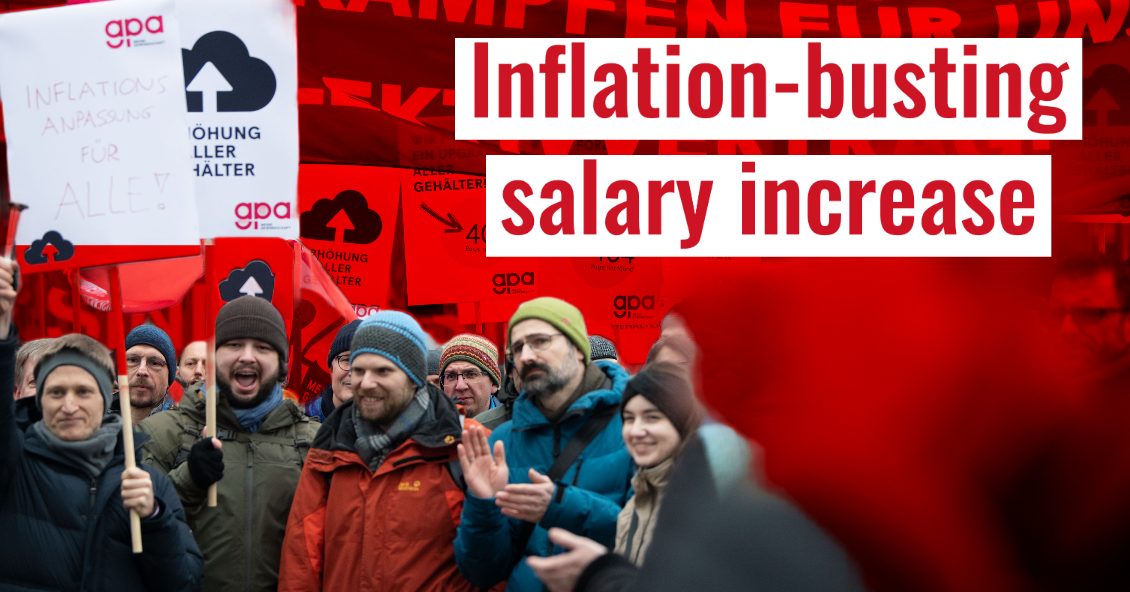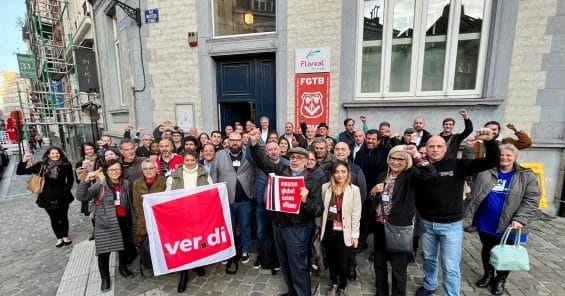IT workers win inflation-busting pay rise in Austria
06.03.23
IT workers and their union GPA have won major pay increases across the sector.
Those who get paid the least will get a salary increase of +17%. Employees who are paid above the sectoral minimum wage will receive a 7.7% increase. Approximately 65,000 workers are covered by the pay rises. While the agreement was signed in February, the salary increases enter into force retrospectively from 1 January 2023.
Inspiring #UnionWin by IT workers in Austria:
— UNI Europa (@UNI_Europa) March 6, 2023
➕17% #PayRise for those on lowest pay
?#Inflation-busting salary increases for the rest
?#GenderPayGap anti-discrimination clause
Congrats to the workers & their union @GewerkschaftGPA ?#GoodNews #CostOfLiving #JoinAUnion pic.twitter.com/lxKIPboCib
Closing the gender pay gap
Another major improvement in the agreement concerns anti-discrimination clauses. In the past, employers had the right to withhold negotiated pay increases for 10% of people paid over the minimum wage. Women were over-represented among those workers for whom employers refused to pay salary increases.
By analyzing pay data from works councils across the sector, GPA exposed this practice as contributing to the significant gender pay gap in the sector. To solve this, they pushed for negotiated salary increases to apply to everyone, closing the door to the discriminatory practices of the past.
This proved to be a decisive point and generated significant press attention. The press coverage in turn drew defensive reactions from the employer federation. However, with strong evidence-based arguments and clear communications, the union won over overwhelmingly favourable coverage, putting public pressure onto the employers.
“On average, IT companies pay women less. This creates a hostile environment for women in tech. The sector is experiencing staff shortages. It is time to change the culture and make it more attractive for women,” said Barbara Teiber, President of GPA.
Increasingly determined
IT workers are increasingly interested in getting involved in sector and company decisions that shape their working lives. This worldwide trend had an impact in Austria. GPA undertook a worker survey to determine priorities ahead of negotiations for which participation was very high. Working hand in hand with worker representatives on works councils, for the survey, for mapping out the sector was also key. In a symbol of their unity behind the demands, workers representatives all signed the t shirts which negotiators wore during the first round of negotiations.
Throughout the campaign, engagement was high on social media, where unions were able to interact in real time to receive updates and ask questions directly to the secretariat. Workers reacted particularly well to aspirational and solution-based proposals. This active engagement culminated in two well-attended demonstrations.
“This impressive agreement shows the way forward. Across Europe, we are seeing that when negotiators know they have the determined backing of workers, strong advances can be made. Here, workers were involved from the start and at every step. This builds ownership of union demands. When the time comes for backing those demands, workers are ready to take on the call,” said Oliver Roethig, Regional Secretary of UNI Europa.
The IT sector in Austria is characterized by two different types of employers. On the one had there are independent companies like the multinational ATOS with a diversity of clients. The remaining 27% of companies are outsourced/subsidiary companies, set up by a main company in another sector (typically the finance sector) and operate exclusively to service that company. For instance Raiffeisen operate their outsourced IT company in this way. By mapping out the sector in this way, GPA was able to gain insights into their employer counterparts but also into workplace dynamics, useful in addressing the workers.
Through its European Power and Organising Centre (EPOC), UNI Europa works with its affiliates to build strategies that combine worker engagement and strategic mapping to strengthen collective bargaining. GPA’s IT sector has been working with EPOC since early 2021. Find out more about EPOC here.


